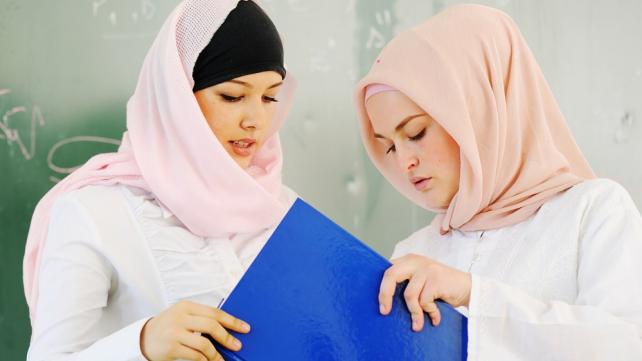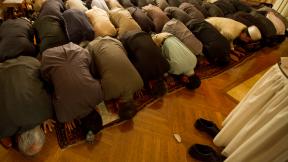
With Ramadan falling during final exams this year, a number of students and their parents are in a tizzy. How can we study efficiently and effectively while fasting during the day and praying late into the night?
No doubt, it is a serious challenge. But thinking and planning ahead, along with proper scheduling, can help us not just cope with the stress, but see how fasting and extra prayers in Ramadan can be a great blessing during this time.
Here are some ideas:
1. Segment your sleep
“Segmented sleep” is actually a Sunnah. It’s a schedule where a person goes to bed once it is dark, wakes up in the middle of the night for some time of alertness, then goes back to sleep until the sun rises.
We find this pattern in the five daily prayers and the practice of Prophet Muhammad, peace and blessings be upon him, of waking up in the middle of the night to pray, called Tahajjud.
In terms of studying for finals, this schedule can help us take advantage of that time in the middle of the night for high concentration studying. Here is how it would work:
- go to sleep right after praying Isha
- wake up two hours before Fajr starts to study
- eat Suhoor
- pray Fajr right when the time starts
- sleep until the early morning (7 a.m. or 8 a.m.)
2. Nap
Naptime is hardly the preserve of babies and preschoolers. Top performers are attuned to the power of this ritual. Naps help alleviate the sleepiness that we feel even outside of Ramadan, especially in the afternoons. The ideal nap is not more than 20 to 30 minutes long and is preferably taken around 2 pm or 3 pm.
Try to schedule a short nap in the early to mid-afternoon. Make sure to set an alarm, or call a family member or friend who will keep calling you until you wake up. You can take a nap in your car, or in a prayer room in your school. There will very likely be other fasting students doing the same. Alternatively, you can also find a quiet corner of a cafe or the school cafeteria and simply put your head down for a quick snooze.
3. Eat smart at Suhur
Prophet Muhammad, peace and blessings be upon him, said, “Eat Suhoor, for in Suhoor there is blessing” (Bukhari, Muslim).
This is critical if you want to get the most out of the fast while maintaining optimum performance during exams. Make sure to set your alarm no later than half an hour before Suhoor time ends so you can eat a proper meal.
While it’s tempting to grab something quick and convenient, then wash it down with a glass of water, plan ahead and make a proper meal before you go to bed after Isha. Or if you can, prepare Suhoor meals on the weekends when you have more time.
“I would focus on meals that provide slow releasing energy,” suggested Hannah El-Amin, Head Dietitian at Nutrition That Fits in Chicago. “This can be accomplished by taking a source of concentrated carbohydrate (dates, other dried fruits, granola) which is packed with energy, and combining it with a protein (Greek yogurt, boiled egg, nuts, hemp seeds), which will help the energy release more steadily and slowly. A smoothie combining several of these ingredients. A date walnut smoothie, combining dates, walnuts, yogurt, honey and milk, for example. (You can add) hemp seeds for an extra protein.”
4. Eat intelligently at Iftar
Foods that are high in fat make us sleepy. That rules out a lot of traditional foods from various Muslims cultures during Ramadan. While cutting back completely is difficult, at least try to limit intake of these items. This will help you be able to pray Taraweeh, and in terms of studying it will help you feel more alert the rest of the day.
5. Recognize your limits - don’t do too much
Limit physical activity during Ramadan so you can save it for the brain power you need to study and concentrate during exams. While a short walk after Iftar may be a good idea, heavy duty workouts, or schedules crammed with various extra-curricular and social activities will waste the energy you need to save for fasting and studying.
6. Dua
“And your Lord says: “Call on Me; I will answer your (Prayer)!” (Quran 40:60).
Dua should be our first and last resort. We should constantly seek Allah’s Help and ease as we fast and study. Begin Ramadan with a sincere Dua for great success in the spiritual and the scholastic. Beg Allah to help you balance all of your responsibilities, and to emerge from Ramadan more God-conscious, a better student, and with more knowledge and understanding.








Add new comment